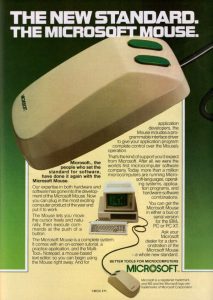Small Business Success Stories Part 6: Bill Gates
“Success is a lousy teacher. It seduces smart people into thinking they can’t lose.“
— Bill Gates
Many of us are familiar with Bill Gates, and if not, at least Microsoft, the worldwide company he founded with Paul Allen in 1975, and which has since become the largest PC software company in the world. Mr. Gates was previously the world’s richest man and is still in the top two, just behind Jeff Bezos.
How Did He Do It
So how did he and this company gain so much success over the years? Gates was born into a well-off family, with both parents being business-oriented – his father a successful attorney and mother later achieving a spot on the Board of Directors for First Interstate Bank. This may have started him off on the right foot, but he also naturally excelled in math. When he was just 13, his school brought in a computer-type machine, which he and his friends were instantly drawn to and learned how to program it to do different things. A new student’s father worked at a computer company as a programmer which lead to more opportunities.
Young Hackers are Born
Gates and his friends learned how to hack the machine and, since the school was paying for time spent on the computer, they figured out how to change the records that recorded this paid time. The company was having many issues with this, other security breaches and failures with all their machines, and remembering the kids at the school who also learned how to hack, they decided to bring them in to identify these weaknesses in the system. In return they would give the kids limitless computer time. Needless to say, Gates and his friends couldn’t resist.
Eventually that computer company went bankrupt so Gates and friend Paul Allen had to find another way to get access to a computer. Allen’s father had access at a university, and the boys found a job to make payroll sheets, and would get paid if the company made a profit from their work. Gates was the one who was ready to build something the “real world” could use, and the boys did. One software program, built at age 15, was for optimizing road traffic, and someone bought it for $20,000.
His parents were not welcoming of this enthusiasm at first, and banned him from computers for an entire year. Then at age 17, he was approached by a company to write some software that would take one year, and he was paid $30,000.
Though Gates went on to Harvard to follow his father’s path, he didn’t want to be there, and Paul Allen would come visit while they planned opening their own company.
Early Micro-soft
In 1975 Micro-soft was created, and while they were producing good software products, the boys couldn’t afford a good sales person, so they used Gates’ mother. By the next year, profits had decreased steadily and that’s when they first found out about piracy – illegal copying of the programs they were building.

Since then, Gates has made many contributions, supporting the idea that software is a creative work and should be protected eg. copyrighted or licensed.
By age 21, Gates had enough of college and wanted to focus on his growing business. With his parents’ rejections, he did it. And in 1977 sales reached $500,000 with a staff of 13.
The team was approached by IBM to develop an operating system, but had to turn it down as they weren’t prepared for developing this, and they recommended their competitor who later built the OS of IBM’s personal computer. Around the same time, Microsoft bought a rough OS called 86-DOS and hired its creator. Thus MS-DOS was born. At this point, Microsoft offered this to IBM, and beat out their competitor for the contract.
The Beginning of DOS
1982 they decided MS-DOS should be sold with a license, and Apple became competition (founded in 1976).
By 1983, the mouse was invented and Windows was introduced for graphics applications. In 1986, the company had a very successful IPO and took out a lot of growing competitors.
Key Takeaways
What are some core principles we can take from this story? Bill Gates had a good foundation to start with, but that is not what created his success. He found a passion for something, and more significantly, something new and with TONS of future potential. Even deal with adversity from his family with the path he wanted to take, he made his own choices to follow what he loved and benefited (and still is benefiting) tremendously.








